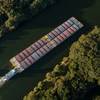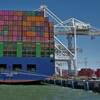Seafarers ... Get Some Rest!
With global focus on the mariner courtesy of MLC2006, reinforced by a number of high profile catastrophic maritime casualties that are directly linked to “the human factor,” preliminary results from the Paris MoU should be disturbing at the least.
Preliminary results from the Concentrated Inspection Campaign (CIC) on STCW Hours of Rest, carried out between September and November 2014 in the Paris MoU region show that:
• 16 ships (14% of detentions during CIC) were detained over the 3 month period as a direct result of the CIC for deficiencies related to hours of rest.
Main areas of concern are hours of rest not being recorded properly and watch keeping personnel without sufficient rest.
In recent years there has been a growing concern regarding hours of rest for watch keeping personnel. Supported by PSC inspection results and a number of incidents, the Paris and Tokyo MoU, as well as other MoUs, decided to organize a joint campaign to verify a list of 10 selected items against the STCW requirements. The CIC questionnaire was completed during 4,041 inspections.
“Insufficient rest of watch keeping personnel has already caused several incidents over the past years,” said Secretary General Richard Schiferli. “ It may be the cause of fatigue, which can have major consequences for safety and the environment. 2 watch systems are particularly vulnerable in this respect.”
During the campaign most inspections concerned general cargo/multi-purpose ships with 1,207 (30%) inspections, followed by:
• bulk carriers with 948 (23%) inspections,
• container ships with 407 (11%) inspections,
• chemical tankers with 375 (9%) inspections and
• oil tankers with 325 (8%) inspections.
Eleven (70%) of the detained ships were general cargo/multipurpose ships, 3 (19%) were bulk carriers, 1 container ship and 1 other ship type.
Analysis of the recorded deficiencies shows that most deficiencies relate to hours of rest not being recorded correctly in 449 cases (11%), watchkeeping personnel did not have sufficient rest in 203 cases (5%) and bridge lookout not maintained in 101 cases (3%). A total of 21 inspections revealed that the manning level was not in accordance with the Minimum Safe Manning Document.
The flag with the highest number of CIC-topic related detentions was Moldova with 3 CIC-topic related detentions.
The inspections showed that a total of 1268 ships were operating with a 2 watch system for the navigational watch and 13 of these ships were detained.. The CIC was a joint campaign with the Tokyo MoU. Others co-operating MoUs have followed the same routine during the campaign.
The detailed results of the campaign will be further analysed and findings will be presented to the 48th meeting of the Port State Control Committee in May 2015, after which the report will be submitted to the International Maritime Organization.
(As published in the February 2015 edition of Maritime Reporter & Engineering News - http://magazines.marinelink.com/Magazines/MaritimeReporter)














